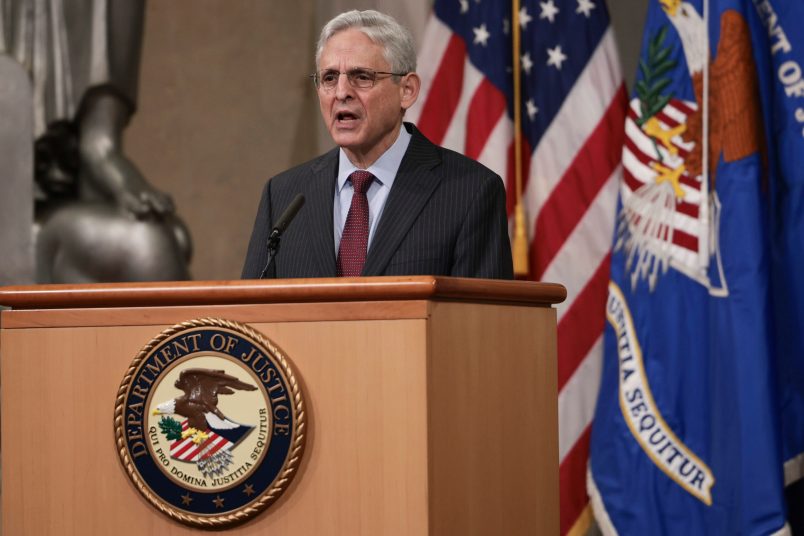The Department of Justice on Thursday sued the state of Texas over some of its new voting restrictions, alleging they violate the Voting Rights Act and the Civil Rights Act.
The federal lawsuit targets some but not all of SB 1, which was passed by the Republican-controlled Legislature and signed by Gov. Greg Abbott (R-TX) in September.
SB1 added new requirements for individuals who assist voters with limited English proficiency or disabilities, including a longer oath that prohibits certain types of assistance such as answering voters’ questions. The Justice Department alleges those requirements violate the Voting Rights Act.
“By requiring individuals who provide voter assistance to take the revised oath, SB 1 prohibits assistors from answering a voter’s questions, explaining the voting process, paraphrasing complex language, and providing other forms of voting assistance that some qualified voters require to cast an informed and effective vote,” the DOJ lawsuit filed Thursday asserted.
The suit also took aim at new requirements for Texans seeking to vote by mail. Under SB1, with certain exceptions, voters who need to participate by mail are required to apply with a form of identification — such as a driver’s license number or a partial Social Security number — that matches the information they used to register to vote. If any of this information doesn’t match a voter’s registration information, their ballot could be rejected.
Those rejection rules are too strict, the Justice Department alleged, and will disenfranchise voters based on discrepancies that aren’t material to determining someone’s qualifications to vote, a violation of the Civil Rights Act.
For example, the suit imagined someone who registered to vote before obtaining their current form of ID. When that person seeks to vote by mail, their ID won’t match the registration information on file with the state.
“Because these voters’ identification document numbers will not identify the same voter identified on the voter’s application for voter registration, SB 1 appears to require rejection of their mail ballot materials,” the suit alleged.
Read the suit below:
This post has been updated.







Having fun yet, Greg Abbott?
It’s gonna be a hoot watching the Fascist Six rule that DOJ has no place suing states about anything.
Just wait until EPA sues Texas for all that smoke from the book burning!
Texas has books?
He’s AWAKE! Quick remind him about Bannon.